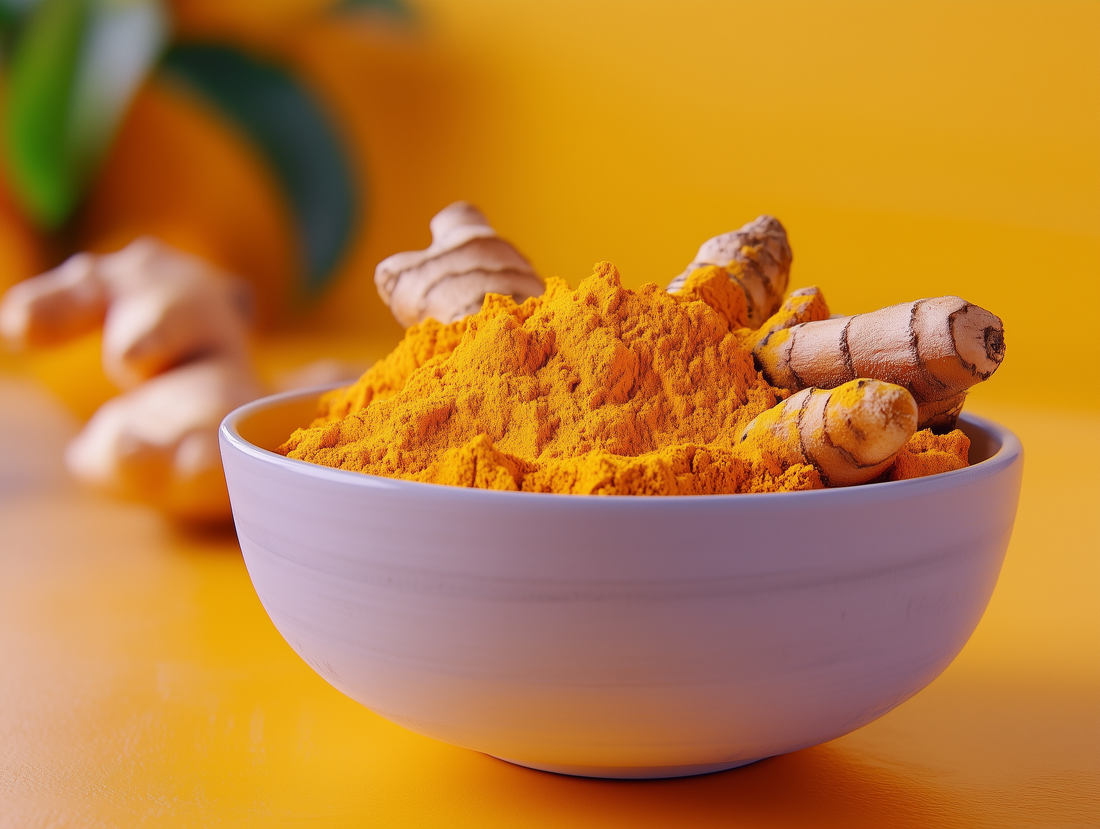
Health or Hype: Turmeric
Turmeric has been hailed as a golden miracle in the world of natural remedies. From being a key ingredient in traditional Indian cuisine to becoming a staple in wellness routines worldwide, this vibrant yellow spice is often credited with a myriad of health benefits. But does turmeric live up to the hype? In this article, we’ll dive deep into the science behind turmeric and explore whether it truly deserves its superfood status.
What is Turmeric?
Turmeric is a bright yellow spice derived from the root of the Curcuma longa plant, which belongs to the ginger family. It has been used for thousands of years in Ayurvedic medicine and traditional Chinese medicine, primarily for its supposed anti-inflammatory and healing properties. Turmeric’s active compound, curcumin, is what gives the spice its color and is believed to be responsible for most of its health benefits.
Claimed Health Benefits of Turmeric
Turmeric is often touted as a remedy for a variety of ailments, including:
-
Anti-Inflammatory Properties
- Chronic inflammation is a significant contributor to many common diseases, including heart disease, cancer, and Alzheimer’s. Turmeric is claimed to have powerful anti-inflammatory effects, potentially helping to manage or prevent these conditions.
-
Antioxidant Powerhouse
- Curcumin is a potent antioxidant that can neutralize free radicals and stimulate the body’s own antioxidant enzymes. This double action may protect the body from oxidative stress, which is linked to aging and many diseases.
-
Improved Brain Function
- Some studies suggest that curcumin may increase levels of brain-derived neurotrophic factor (BDNF), a growth hormone in the brain that could delay or reverse brain diseases and age-related decreases in brain function.
-
Lowered Risk of Heart Disease
- Turmeric’s potential to improve the function of the endothelium, the lining of the blood vessels, and its anti-inflammatory properties may contribute to a lower risk of heart disease.
-
Cancer Prevention and Treatment
- There’s evidence to suggest that curcumin can affect cancer growth, development, and spread at the molecular level. It may contribute to the death of cancerous cells and reduce angiogenesis (growth of new blood vessels in tumors) and metastasis (spread of cancer).
-
Joint Health
- Turmeric is often recommended for people with arthritis due to its anti-inflammatory properties. Some studies have shown that curcumin can be as effective as some anti-inflammatory drugs in reducing symptoms of arthritis.
-
Digestive Health
- In traditional medicine, turmeric has been used to aid digestion and treat conditions like bloating and gas. Its anti-inflammatory properties might also be beneficial for people with inflammatory bowel diseases like Crohn’s disease and ulcerative colitis.
What Does the Science Say?
While the claims about turmeric’s benefits are impressive, what does the scientific evidence actually say? Here’s a closer look at the research behind these claims:
-
Anti-Inflammatory Properties
- Numerous studies support the idea that curcumin has potent anti-inflammatory effects. However, the amount of curcumin in turmeric is relatively low (around 3% by weight), and the compound is not easily absorbed by the body. To achieve therapeutic effects, high doses of curcumin, often combined with piperine (a compound found in black pepper that enhances absorption), are required.
-
Antioxidant Effects
- Curcumin’s antioxidant capacity is well-documented, and it’s recognized for its ability to combat oxidative stress. However, much of the research has been conducted in vitro (in the lab) or in animal studies, which may not directly translate to significant effects in humans.
-
Brain Health
- There is promising research indicating that curcumin could boost BDNF levels, potentially helping with brain function. However, more large-scale human studies are needed to confirm these effects.
-
Heart Disease
- Studies suggest that curcumin can improve endothelial function, which is crucial for heart health. However, like many of turmeric’s benefits, the effects are more pronounced with curcumin supplements rather than turmeric alone.
-
Cancer
- The potential anti-cancer properties of curcumin are supported by early research, particularly in laboratory studies. However, clinical trials in humans are still limited, and curcumin should not be seen as a substitute for conventional cancer treatments.
-
Joint Health
- Some clinical trials have shown that curcumin can reduce arthritis symptoms comparable to anti-inflammatory drugs, but with fewer side effects. This makes it a promising option for those looking for natural alternatives.
-
Digestive Health
- The use of turmeric in digestive health is largely supported by traditional usage, with some modern studies indicating benefits for inflammatory bowel disease. However, more research is needed to establish its efficacy definitively.
Potential Side Effects and Considerations
Turmeric is generally considered safe when consumed in food. However, when taken in large amounts, especially in supplement form, it may cause side effects such as gastrointestinal issues, nausea, and dizziness. It may also interact with certain medications, including blood thinners and diabetes medications.
Additionally, the low bioavailability of curcumin in turmeric means that to achieve therapeutic benefits, one would likely need to consume it in supplement form, often combined with piperine. Therefore, while turmeric is a valuable addition to your diet, it’s important to manage expectations about its health benefits.
Conclusion: Health or Hype?
Turmeric undoubtedly has some scientifically backed health benefits, particularly due to its anti-inflammatory and antioxidant properties. However, many of the claims surrounding turmeric, especially in terms of preventing or treating serious diseases, are based on preliminary research or require large doses of curcumin supplements to achieve.
In summary, while turmeric is more than just hype, it’s essential to approach it as part of a balanced diet rather than a cure-all. If you’re considering turmeric supplements, especially for specific health conditions, it’s wise to consult with a healthcare provider to ensure it’s appropriate for your needs.
Stay tuned for our next article in the "Health or Hype" series, where we’ll explore the truth behind another popular natural ingredient!


